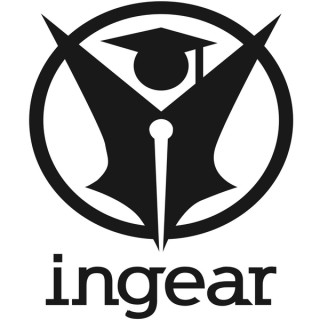Podcast appearances and mentions of Robert A Welch
- 3PODCASTS
- 3EPISODES
- 13mAVG DURATION
- ?INFREQUENT EPISODES
- Apr 29, 2020LATEST
POPULARITY
Latest podcast episodes about Robert A Welch
Scholarships to study an advanced degree in Chemistry with Dr Luis Echegoyen, 2019 President of the American Chemical Society
Our special guest is Dr. Luis Echegoyen, 2019 president of the American Chemical Society. Dr. Echegoyen is the Robert A. Welch Professor of Chemistry at the University of Texas, El Paso. Previously he was the Director of The Chemistry Division of the National Science Foundation and before that professor and Chairman of the Department of Chemistry at Clemson University.Dr. Luis Echegoyen graduated with a Ph.D. in chemistry from the University of Puerto Rico and did his postdoc at the University of Wisconsin, Madison. Next, he transferred to Union Carbide as a Nuclear Magnetic Resonance Spectroscopist. In 1977 he returned to the University of Puerto Rico and started his fruitful academic career. He also had professorship positions at the University of Maryland and the University of Miami, and did two sabbatical terms, one at the Universite Louis Pasteur, France, and another at the Swiss Institute of Technology or ETH, in Zurich.In this conversation, Dr. Echegoyen talks about his treasured memories of childhood in Cuba. His father, the internationally acclaimed actor Luis Echegoyen, who scaped with the family and took refuge in Puerto Rico when Fidel Castro ousted the dictator Fulgencio Batista in 1959. Those were hard times. But hard work and perseverance rendered fruit. Thanks to his father, Dr. Echegoyen met in person famous people like Leopoldo Fernández (Trespatines), star in the internationally known TV and radio show "La Tremenda Corte", and the world-renowned singer Celia Cruz.
Growing up in central Illinois, Eric Simanek was surrounded by corn destined for feed or alcohol. He holds degrees in chemistry from the University of Illinois and Harvard University and is the Robert A. Welch Professor of Chemistry and Biochemistry at Texas Christian University (TCU) and Director of the TCU IdeaFactory. When he is not in a classroom or lab, he enjoys sharing his love of science with all ages and sharing whiskey with good friends.
Inspired by the paper-folding art of origami, chemists at The University of Texas at Austin have developed a 3-D paper sensor that may be able to test for diseases such as malaria and HIV for less than 10 cents a pop. Such low-cost, “point-of-care” sensors could be incredibly useful in the developing world, where the resources often don’t exist to pay for lab-based tests, and where, even if the money is available, the infrastructure often doesn’t exist to transport biological samples to the lab. “This is about medicine for everybody,” says Richard Crooks, the Robert A. Welch Professor of Chemistry. One-dimensional paper sensors, such as those used in pregnancy tests, are already common but have limitations. The folded, 3-D sensors, developed by Crooks and doctoral student Hong Liu, can test for more substances in a smaller surface area and provide results for more complex tests.






